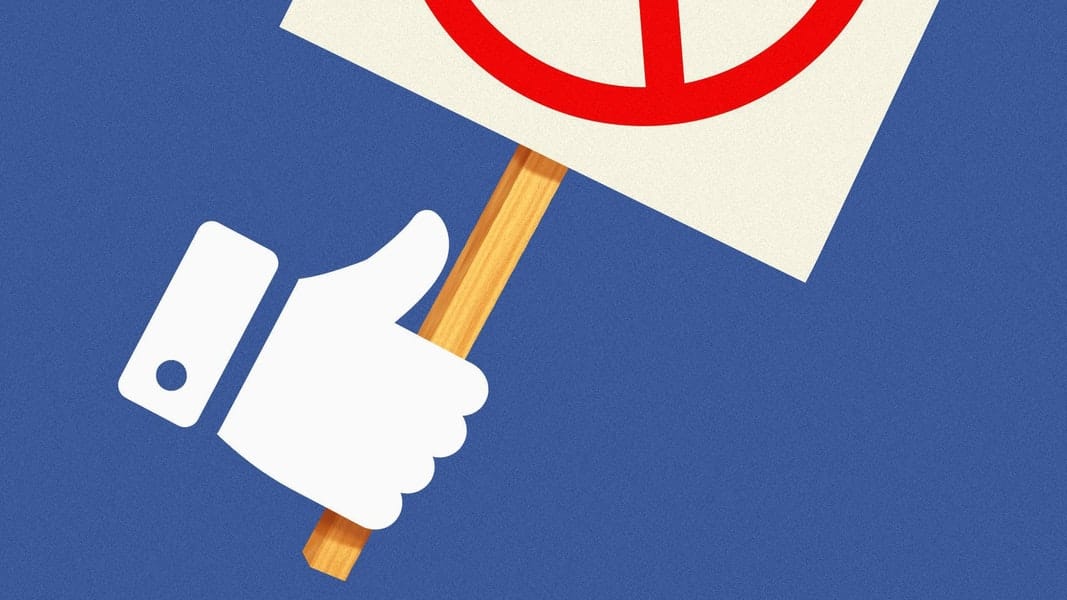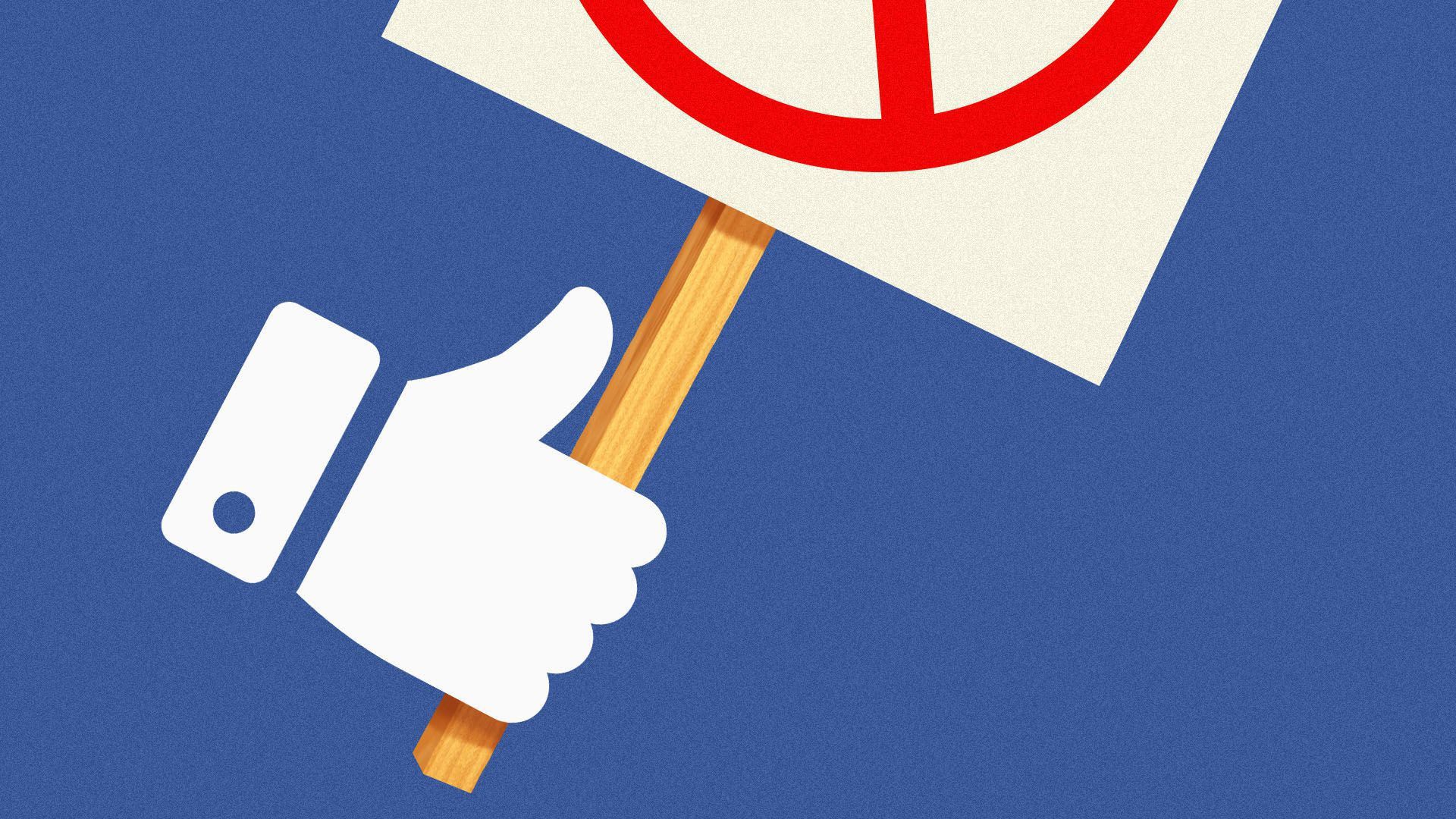Facebook Begins to Feel the Heat
But so far, only one scholarly publisher has signed on to #StopHateForProfit

The boycott of Facebook by advertisers has been expanding rapidly, and a backlash tied to money appears to be having a noticeable effect on Mark Zuckerberg’s attitudes and behaviors. As Scott Galloway stated around the time this all started, such an approach was likely the only way to get Zuckerberg’s attention:
“Every action, every decision [Mark Zuckerberg] has ever made points to one place — How do I get the stock price up?”— “Pivot” podcast, June 5, 2020

The past few days have seen some major developments associated with the movement known as #StopHateForProfit, an initiative from the Anti-Defamation League started in response to police killings of unarmed Black citizens and violence-laden responses by the police and key politicians. Facebook’s contemporaneous decision to leave up a post from President Trump containing a white supremacy dog-whistle line — “When the looting starts, the shooting starts” — became a flashpoint for users and Facebook employees, touching on the platform’s prior distasteful involvement in fanning flames of climate change denialism, white supremacy, subversion of democratic processes, and political polarization.
#StopHateForProfit now has more than 175 companies pledging to boycott Facebook in July, including Coca-Cola, Verizon, and Hershey’s. Unilever — one of Facebook’s largest advertisers and owner of brands like Ben & Jerry’s, Dove, Degree, and Suave — went a step further, boycotting Facebook for the remainder of 2020. Unilever’s Executive VP for Global Media, Luis Di Como, put it this way in an interview with the Wall Street Journal:
Based on the current polarization and the election that we are having in the U.S., there needs to be much more enforcement in the area of hate speech. Continuing to advertise on these platforms at this time would not add value to people and society. . . . The complexities of the current cultural landscape have placed a renewed responsibility on brands to learn, respond, and act to drive a trusted and safe digital ecosystem.
It’s worth noting that Di Como is implicitly saying that Facebook can’t be trusted to “drive a trusted and safe digital ecosystem.” He’s not wrong. (If you want more fulsome coverage of Facebook’s missteps, misdeeds, and misinformation, follow Judd Legum’s excellent “Popular Information” newsletter.)
In response, Zuckerberg has agreed to some changes, which the movement #StopHateForProfit immediately condemned as insufficient:
[Zuckerberg] stated that Facebook would apply their hate policy to ads as if it was some new revelation, while not addressing hate more broadly in groups and posts. Voter misinformation may be a bit harder to spread the day of the election (but still will run rampant the rest of the time). And posts that call for violence will still be allowed if they come from someone “newsworthy” but they will now be labeled. None of this will be vetted or verified — or make a dent in the problem on the largest social media platform on the planet.
We have been down this road before with Facebook. They have made apologies in the past. They have taken meager steps after each catastrophe where their platform played a part. But this has to end now.
A parallel movement in academia — #BlackInTheIvory — seeks to place a spotlight on campus and academic racism. It was related to the #ShutDownSTEM protest earlier this month. Notably, many universities continue to advertise on Facebook, including MIT, Georgetown, UC Berkeley, UC Davis, UC San Diego, University of North Carolina, Northeastern, Ohio State, and more. No major universities are currently listed as part of the #StopHateForProfit boycott.
From the perspective of scholarly publishers, the advertising boycott has not led to any apparent behavior changes. As I documented last week, many publishers have recently added or renewed Facebook advertising despite the current potential downsides of being associated with the platform.
However, as of last night, one publisher — Annual Reviews, along with their popular science magazine, Knowable — has signed onto the boycott. I commend them for stepping forward, and wonder why so many other organizations with missions of social responsibility and equity are remaining silent.
Facebook isn’t the only problematic media outlet, but it is different in a key aspect. For instance, Fox News has also been a target for advertising boycotts. Tucker Carlson’s show was recently boycotted for issues around racism. With early studies linking Fox News with Covid-19 misinformation and deleterious health outcomes, more boycotts may be headed Fox’s way.
Unlike Fox News, where shows and hosts can suffer greatly if 5-7 advertisers choose to boycott, Facebook has tens of thousands of small advertisers, and only feels the heat if a wide swath of large and small advertisers pull away from the platform. This is why having participation at all levels is important to ensuring that Zuckerberg modifies the practices on his platform.
Of course, not every organization that may choose to boycott Facebook wants to identify with the movement. Preliminary reports are that Pepsi may be quietly boycotting Facebook during July and August, without making an announcement, and Starbucks just announced it will suspend all social media advertising without officially joining the boycott. If your organization has a story to tell about moving off Facebook during July or otherwise due to the controversies, please let me know. Your identity will be protected, and I’d like to know to help inform future checks on who is still advertising in July and who is not.
No matter what, the actions or inactions of advertising decisions will be visible to all, via the #StopHateForProfit Google sheet and Facebook’s ad library.
It’s June 29th. What will your organization be doing relative to the world’s most powerful propaganda and misinformation platform? Still paying its billionaire owner as if nothing is wrong? Or registering your disgust and indignation by suspending activity until its CEO agrees to run “a trusted and safe digital ecosystem”?